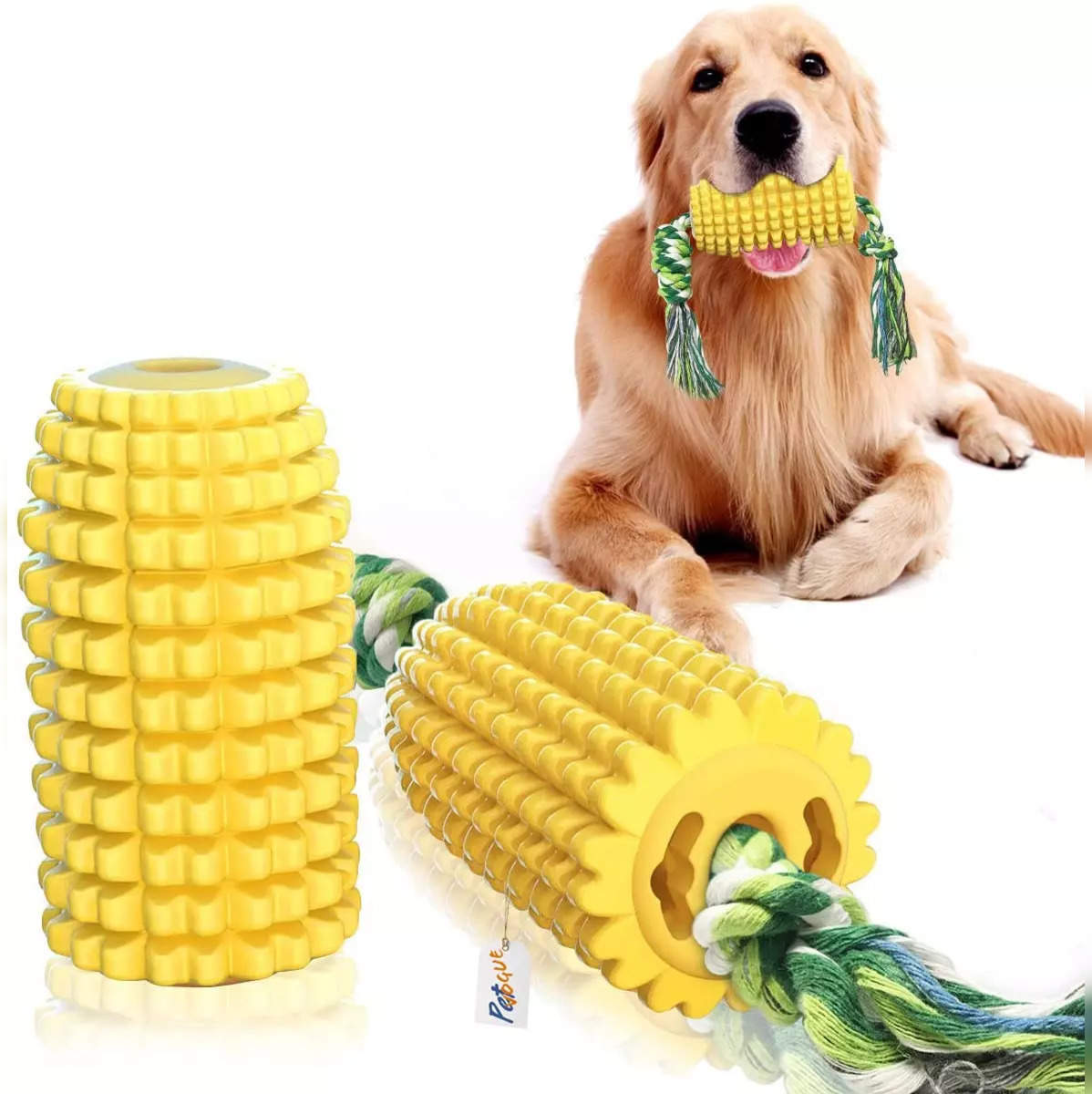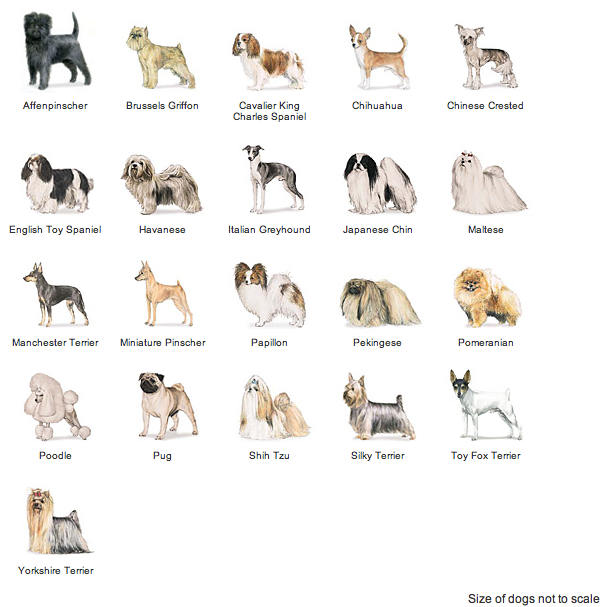Are Toy Dogs Healthy? Let’s Find Out
Last Updated on May 13, 2024 by Petpalace54
Are you worried about Are Toy Dogs Healthy? Or not? Toy dogs can be prone to health issues due to their small size. Common concerns include tracheal collapse, respiratory issues, and hypoglycemia.
As much as we love toy dogs for their portable size and adorable features, the truth is that they come with their share of health concerns. Small breeds like chihuahuas, yorkshire terriers, and teacup poodles are delicate in many ways, & their internal systems may not be equipped to handle the stresses larger breeds can manage.
Then, respiratory issues are especially common among toy breeds due to their flattened facial features, and their tiny frames make them particularly vulnerable to hypoglycemia. While regular veterinary care and proper nutrition can help minimize health risks, potential toy dog owners need to consider these factors when deciding whether this type of pet is a good fit for their lifestyle.

Credit: m.economictimes.com
Table of Contents
Are Toy Dogs Healthy? Possible Health Issues For Toy Dogs
Toy dogs are not immune from health issues; in fact, they may be prone to specific conditions. Hypoglycemia, spinal problems, dental issues, & respiratory troubles are common among toy breeds due to their small size. Therefore, it is essential to ensure proper veterinary care for toy dogs.
Possible Health Issues for Toy Dogs
Toy dogs are cute & adorable pets that one can easily carry around. However, these breeds come with their set of health risks, and it is essential to be well-informed before getting one as a pet. The small stature of toy dogs makes them more vulnerable to certain health risks than bigger dog breeds. Therefore, you must be aware of the possible health issues that your toy dog might face. In this blog post, we will focus on three major health concerns that toy dogs have- respiratory issues, hypoglycemia, and bone fractures.
Hypoglycemia
Hypoglycemia is a significant and prevalent health concern among toy dogs, especially in teacup breeds. These dogs have small body, & their tiny stomachs may fail to store enough food, leading to low blood sugar levels. An extreme drop in blood sugar can result in symptoms like shivering, weakness, and seizures. Hypoglycemic episodes can be fatal if not treated immediately. It is essential to feed your toy dog a balanced diet and spread meals throughout the day to avoid this issue.
Respiratory Issues
Toy breeds are prone to respiratory issues due to their small size and flattened faces. Brachycephalic breeds like Pugs, French bulldogs, Shih Tzus, Pekingese, & Lhasa Apsos, have respiratory issues due to their nasal structure. These respiratory problems include elongated soft palate, stenotic nares, hypoplastic trachea, & collapsing trachea. These conditions make it challenging for toy dogs to breathe correctly; hence, it is crucial to monitor your toy breed’s breathing and take them to the vet promptly.
Bone Fractures
Toy breeds are highly susceptible to bone fractures due to their fragile bone structure. They can fracture their bones even with slight stress, trauma, or falls that larger breeds can withstand. Bone fractures can be painful and may require surgery to correct. It is essential to keep your toy dog safe by avoiding excessive physical activity, not letting them jump from high surfaces, & cushioning any falls.
In conclusion, Toy dogs are cute and adorable, but they come with their set of health risks. Hence, it is essential to be aware of the possible health issues. Regular vet checkups, a well-balanced diet, and careful monitoring can ensure that your toy dog lives a happy and healthy life.

Credit: www.amazon.com
Why Avoid Toy Breed Dogs?
Toy breed dogs may seem cute, but they often come with health issues related to their small size. These breeds are more prone to ailments such as tracheal collapse & hypoglycemia. It is important to consider these factors before choosing a toy breed as a pet.
Why Avoid Toy Breed Dogs?
However, toy breed dogs have become a popular choice among pet owners, especially those who live in small spaces. These dogs offer the same virtues as larger breeds, but with the added advantage of being portable and easy to care for. While toy breed dogs can be adorable & cute, the question arises, are they healthy? In this blog section, we will discuss the reasons why you should avoid toy breed dogs and the possible expensive health issues that can arise.
Expensive Health Issues
It is a well-known fact that toy breed dogs are susceptible to numerous health problems. Due to their small size, they are prone to developing specific ailments, including dental problems, hypoglycemia, tracheal collapse, & luxating patellas, just to name a few. Moreover, these health problems can prove to be extremely expensive, and some may require lifelong medical attention.
According to a report published by the American Kennel Club, some of the most expensive dog breeds to take care of include the Pekingese, Shih Tzu, and Brussels Griffon, all of which are classified as toy breeds. The report highlights that these breeds are prone to numerous health issues that require costly veterinary care, including eye & respiratory problems, which can result in costly surgeries and lifelong medications.
In conclusion, if you’re considering getting a toy breed dog, always be aware of the potential health issues and their associated expenses. While these dogs may be cute and cuddly, they require special care and can incur high medical costs. In the end, the best way to ensure Are Toy Dogs Healthy, or Not of a pet is by adopting a breed that fits your lifestyle & doesn’t come with a high price tag.
Healthiest Small Dog Breeds
Small toy dog breeds can be healthy, but they are also prone to health issues. Common problems include tracheal collapse, respiratory issues, & hypoglycemia. The Pembroke Welsh Corgi is a healthy and low maintenance small dog breed known for its longevity.
Pembroke Welsh Corgi
The Pembroke Welsh Corgi is one of the healthiest small dog breeds. They’re known for their longevity, ease of care, and overall health. These dogs have a well-proportioned compact body, making them perfect for owners looking for a small dog that’s low maintenance and less susceptible to health issues. They also have an affectionate personality and are great with families and children.
Australian Cattle Dog
The Australian Cattle Dog is another small breed known for its good health. These dogs are very active, making them perfect for owners who want to maintain an active lifestyle with their pets. They’re prone to minor health issues such as elbow dysplasia and deafness, but these can be managed with regular vet check-ups and a healthy diet. Australian Cattle Dogs are very intelligent too, which makes them easy to train.
Australian Shepherd
Australian Shepherds are a popular choice among dog owners because of their intelligence & energy. They’re also one of the healthiest small dog breeds, with a life expectancy of around 12 to 15 years. They’re prone to certain health issues such as hip dysplasia & cataracts, but these can be prevented by maintaining a healthy lifestyle.
Beagle
Beagles are a friendly and loving breed, making them popular among families. They’re also one of the healthiest small dog breeds, with a life expectancy of around 10 to 15 years. These dogs are predisposed to certain health issues such as hip dysplasia and ear infections, but with proper care and attention, these can be managed. Beagles are also known for their sense of smell & make great hunting companions.
Greyhound
Greyhounds are known for their speed and agility, making them a popular choice among dog owners. They’re also one of the healthiest small dog breeds, with a life expectancy of around 12 to 15 years. These dogs are prone to certain health issues such as bloat & dental problems, but proper care and nutrition can prevent most of these issues.
Poodle
Poodles are one of the healthiest small dog breeds and are hypoallergenic. They’re known for their curly coats & elegant appearance, making them a popular choice among pet owners. These dogs are prone to certain health issues such as hip dysplasia and cataracts, but with regular health check-ups and proper nutrition, these can be managed.
Havanese
Havanese dogs are known for their friendly & sociable personality, making them great family pets. They’re also one of the healthiest small dog breeds, with a life expectancy of around 14 to 16 years. These dogs are prone to certain health issues such as patellar luxation and eye problems, but with proper care and attention, these can be managed.
German Shorthaired Pointer
German Shorthaired Pointers are a popular choice among hunting enthusiasts because of their excellent tracking abilities. They’re also one of the healthiest small dog breeds, with a life expectancy of around 12 to 14 years. These dogs are prone to certain health issues such as hip dysplasia and ear infections, but with proper care and nutrition, these can be managed. German Shorthaired Pointers are also very intelligent, making them easy to train.
Teacup Dogs: Everything To Know
Teacup dogs, which are a type of toy dog breed, often experience health issues due to their small size. Some common concerns among teacups include hypoglycemia & respiratory issues. It’s important to consider the potential health risks before deciding to adopt a teacup dog.
Teacup Dogs: Everything to Know
The topic of teacup dogs has been a controversial one over the years, with many people wondering whether or not they are healthy or ethical to breed. Teacup dogs, also known as toy dogs, are specifically bred to be smaller than their breed’s standard size. In this section, we will cover everything you need to know about teacup dogs, including how long they live, how to reduce stressful situations, socialization, veterinary care, health concerns, and ethics.
How Long Do They Live?
According to AnimalWised, teacup dogs can live anywhere from 12 to 14 years. However, their lifespan is largely dependent on the individual dog’s genetics, care, & access to proper veterinary treatment.
Reduce Stressful Situations
Teacup dogs are tiny and fragile, which makes them more susceptible to stress and anxiety. To reduce stressful situations, it’s important to create a calm and comfortable environment for your teacup dog. This includes providing them with a safe and quiet space to retreat to when they feel overwhelmed, avoiding loud noises or sudden movements, & keeping their daily routine as consistent as possible.
Socialization
As with all dogs, socialization is critical for teacup dogs. Socializing your teacup dog from an early age can help prevent fear & anxiety, and improve their overall behavior. This includes exposing them to new people, places, and experiences, and providing them with plenty of positive reinforcement and attention.
Veterinary Care
Due to their small size, teacup dogs are prone to a variety of health issues and require regular veterinary care. It’s important to find a veterinarian who is experienced in treating toy breeds, and to keep up with routine check-ups, vaccinations, and dental care. Additionally, it’s important to watch for any signs of illness or injury & seek veterinary care promptly.
Health Concerns
Teacup dogs are at a higher risk for certain health issues due to their small size. This includes hypoglycemia, heart problems, dental issues, respiratory problems, and more. It’s important to be aware of the potential health concerns & take steps to prevent or manage them.
Ethics
The topic of teacup dog breeding raises ethical concerns. Many argue that it is unethical to breed dogs to be smaller than their breed standard, as it can lead to serious health issues. Additionally, the demand for teacup dogs often leads to irresponsible breeding & poor living conditions for the dogs.
Facts
Teacup dogs come in a variety of breeds, including Yorkshire Terriers, Shih Tzus, Poodles, Maltese dogs, Chihuahuas, & Bichon Frises. While they may be cute and cuddly, it’s important to consider whether or not a teacup dog is the right choice for your lifestyle and if breeding them is ethical.
Looking For A Teacup Dog Or Puppy?
Pet lovers searching for a Teacup Dog or Puppy should consider the health risks associated with toy dogs. Small breeds like Chihuahuas, Maltese dogs, & Shih Tzus often suffer from health issues related to their size, including respiratory problems, tracheal collapse, and hypoglycemia.
It’s essential to choose a small dog breed with the least health problems.
Looking for a Teacup Dog or Puppy? It is important to consider the health concerns associated with these tiny breeds. Teacup dogs are bred to be extremely small, often weighing less than 4 pounds when fully grown. While they may seem cute and cuddly, these tiny dogs can be prone to a variety of health issues.
Health Concerns
Teacup dogs are often bred to be much smaller than their breed standard, which can lead to health problems. Some health issues associated with teacup dogs include:
- Hypoglycemia: Teacup dogs have incredibly small stomachs, which means they need to eat frequently. If they do not receive regular meals or their blood sugar drops too low, hypoglycemia can occur. This can lead to weakness, lethargy, & even seizures.
- Dental Problems: Small dogs, including teacup breeds, are prone to dental issues. This is because their teeth are often too large for their small mouths, & their teeth can become overcrowded or misaligned. This can lead to tooth decay, gum disease, and other dental problems.
- Respiratory Issues: Teacup dogs often have delicate respiratory systems, which can lead to breathing difficulties. Some breeds are particularly prone to respiratory issues, such as Pugs, French bulldogs, Shih Tzus, & Lhasa Apsos. These breeds have short snouts, which can make it difficult for them to breathe properly.
If you are considering a teacup dog, it is essential to be aware of the potential health concerns associated with these tiny breeds. Regular veterinary check-ups and proper care can help to keep your dog healthy.
Consider A Small Dog That Meets The Breed Standard
If you are looking for a small dog, it is crucial to consider a breed that meets the standard size guidelines of their breed. This can help to ensure that your dog is healthy and less prone to health issues. Some small dog breeds that are known for their health and longevity include:
- Pembroke Welsh Corgi: This breed is one of the smallest, and it is also one of the healthiest. They are known for their longevity & overall health.
- Miniature Schnauzer: These dogs are small but sturdy, with a lifespan of up to 15 years. They are also known for their intelligence & affectionate nature.
- Boston Terrier: This breed is compact and muscular, with a lifespan of up to 14 years. They are known for their playfulness & adaptability.
In conclusion, while teacup dogs may seem like an appealing option, it is important to consider the potential health concerns associated with these tiny breeds. Thus, by doing your research & choosing a small dog that meets the breed standard, you can ensure that your furry friend stays healthy and happy throughout their life.
Why Teacup Dogs Are Bad?
While toy dogs can be cute & cuddly, they can also come with numerous health issues common to smaller breeds, such as tracheal collapse. Teacup dogs, in particular, can suffer from extreme hypoglycemia due to their small size, making them bad for someone looking for a healthy pet.
dings in HTML syntax:
High Risk Of Health Problems
Teacup dogs are bred to be smaller than toy breeds, making them the smallest among the already small dog breeds. However, this extreme smallness makes them more prone to serious health issues. According to veterinary experts, health problems common in toy breeds such as hypoglycemia, heart disease, respiratory issues, & liver shunts are even more prevalent in teacup dogs. Due to their smaller size, their internal organs are also smaller and more delicate, making them more susceptible to injury or failure. This is especially true for teacup puppies, whose tiny bodies are not yet fully developed.
Expensive Health Issues
Because teacup dogs are so prone to health problems, they can be extremely expensive to care for. Owners of teacup dogs often face numerous veterinary bills, & their fragile health can also lead to a shorter lifespan. According to some studies, teacup dogs may live an average of only three to four years, compared to a typical twelve-year lifespan for larger dogs. Additionally, the high demand for teacup dogs means that they are often bred in poor conditions, leading to further health problems and ethical concerns.
In conclusion, while teacup dogs may seem like cute and cuddly pets, their extreme smallness comes with severe health risks that can lead to expensive veterinary bills and shorter lifespans. As such, it is important to carefully consider the potential health issues of teacup dogs before making the decision to adopt one. Adopting a larger toy breed or a small breed with fewer health risks may be a better choice for those seeking a furry, four-legged companion.

Credit: www.nylabone.com
Frequently Asked Questions On Are Toy Dogs Healthy
Do Tiny Dogs Have Health Problems?
Unfortunately, tiny dogs are prone to health issues common in small breeds. Respiratory issues due to their nasal structure are often found in brachycephalic breeds such as Pugs, French Bulldogs, Shih Tzus, Pekingese, and Lhasa Apsos. Teacup dogs may experience health concerns related to their size, including hypoglycemia.
However, breeds like Pembroke Welsh Corgi are known for their longevity and overall good health, making them the healthiest small breed. It is recommended to avoid teacup dogs & consider small dogs that meet breed standards to avoid health complications.
Do Teacup Dogs Have Health Issues?
Teacup dogs often experience health issues related to their size, such as hypoglycemia, weakness, and seizures due to an extreme drop in blood sugar. They may also have respiratory issues due to their nasal structure. It is important to carefully consider the potential health complications before acquiring a teacup dog.
What Is The Healthiest Small Dog Breed?
The healthiest small dog breed is the Pembroke Welsh Corgi, known for its longevity and overall health. Small breeds like teacup dogs are prone to health issues related to their size, such as hypoglycemia, respiratory issues, & tracheal collapse. When choosing a small dog, consider one that meets the breed standard rather than a teacup puppy that may have poor breeding and health complications.
What Dog Breed Has The Fewest Health Problems?
The Pembroke Welsh Corgi is one of the smallest breeds and has the fewest health problems. They are known for their longevity, low-maintenance, & overall good health. Other healthy small breeds include the Australian Cattle Dog, Australian Shepherd, Beagle, Greyhound, Poodle, Havanese, Chihuahua, and German Shorthaired Pointer.
Summary
Small toy dogs may be cute and cuddly, but they do come with their own set of health concerns. Are Toy Dogs Healthy? Actually, these dogs can be prone to respiratory issues, hypoglycemia, and even tracheal collapse. However, with proper care and veterinary attention, owners can help mitigate these risks and ensure their small dogs live healthy, happy lives.
Finally, when considering adding a toy dog to your family, be sure to do your research and choose a breed that is known for good health and longevity. Remember that smaller isn’t always better, & prioritize your dog’s health above all else.







